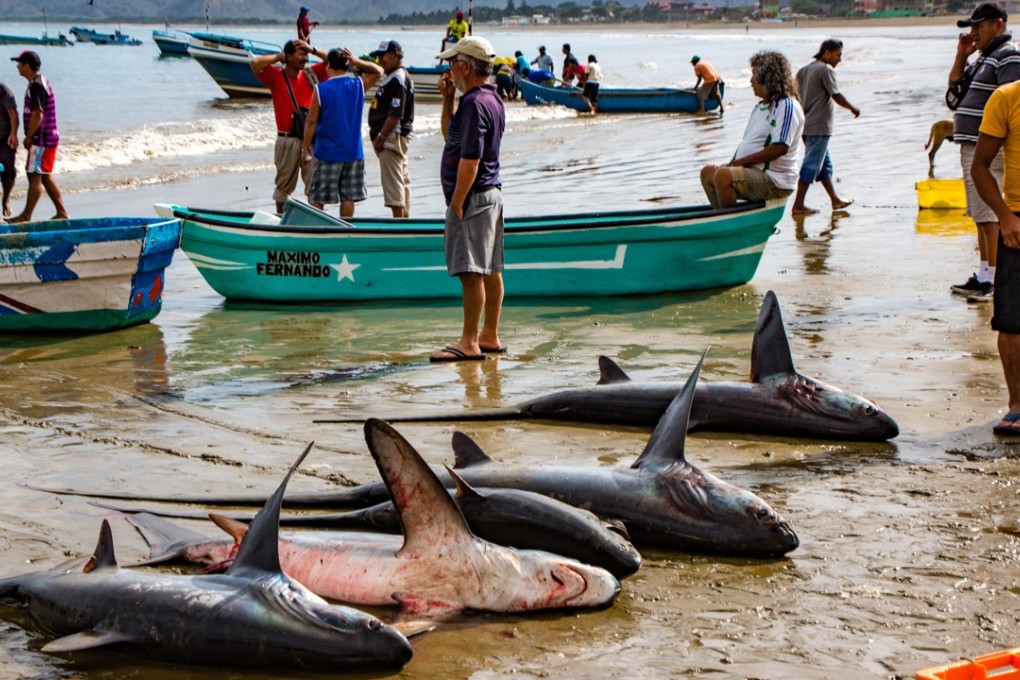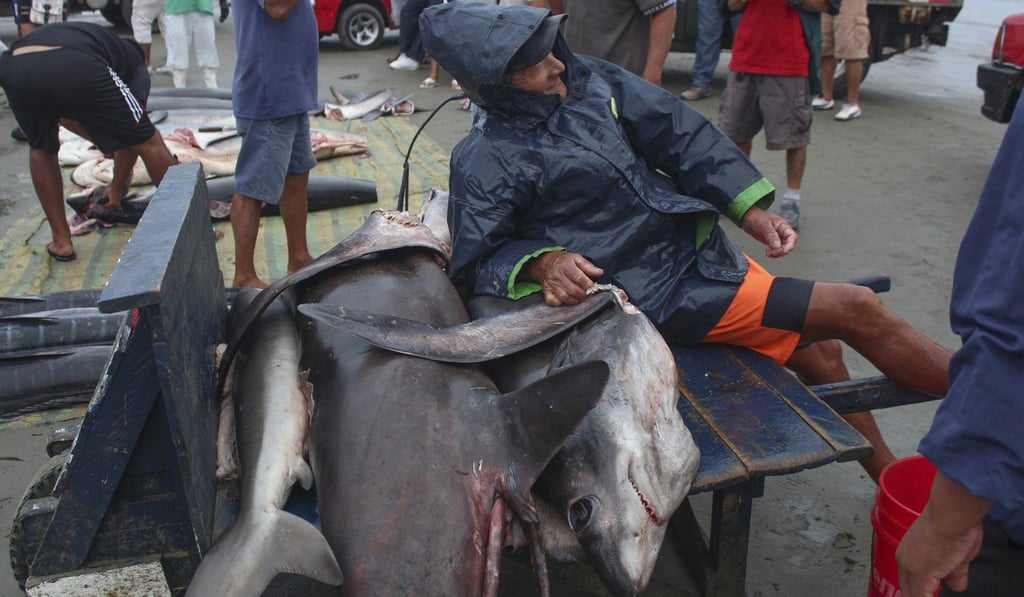War on sharks: Chinese demand for fins driving rogue fishing fleets to plunder ocean’s top predator
Despite the capture of a Chinese freighter off the Galapagos islands last year, its hold packed tight with 150 tonnes of dead sharks, the Pacific Ocean off Central America remains a blood-soaked environmental crime scene

It was billed as the biggest poaching bust in history, a huge win for conservationists. An Ecuadorean navy patrol vessel, guided by advanced radar and a small plane, bore down on a ship the length of a football field making a beeline across the Galapagos Marine Reserve – probably the most fiercely protected waters in the world. Filling the freighter’s freezers were 150 tonnes of dead sharks, most of them endangered and illegal to sell.
Only small pieces of those 6,000 carcasses were actually of much value: the fins.
Shark fins have long been a delicacy in China and among Chinese communities worldwide, the main ingredient in an expensive soup served at banquets and fancy restaurants. At peak, dried fins have sold for more per kilogram than heroin. That price, coupled with high demand from a booming Chinese economy, has created a brutally efficient industry capable of strip-mining sharks from the sea.
With fishing lines more than 120km long, commercial shark fishermen can catch hundreds of sharks at once. Tens of millions are fished from oceans every year, and some scientists have estimated that number to be more than 100 million.
“[With] the amount of sharks that we are pulling in all over the world, it seems insane that there should be any left,” says Ben Harris, director of Sea Shepherd Conservation Society’s Panama Chapter.

The Pacific Ocean off Central America has become ground zero in the battle to protect sharks. Even here – the richest shark waters on the planet – biologists fear relentless overfishing could see populations of the most sought-after species spiral into irreversible collapse and take the entire marine food chain down with them.
